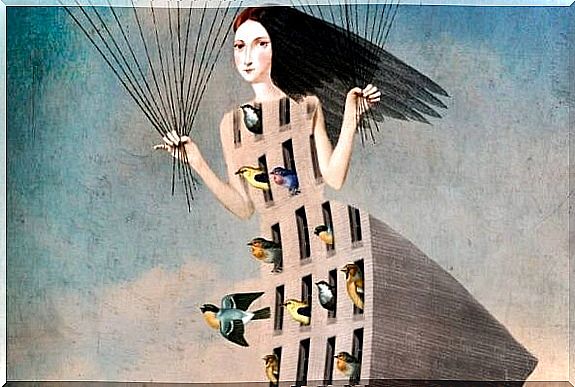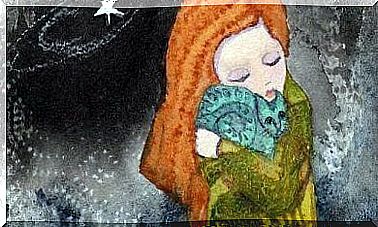Collective Narcissism, A Virus That Spreads More And More

Collective narcissism has become a virus. We can define it that way because it hurts, spreads and spreads easily. Although it may not seem like it, this quest for exaltation of the group itself to the detriment of others is a dynamic that has occurred throughout the ages, varying in intensity and reaching highs in certain historical moments, such as Nazi Germany.
It expresses a certain nostalgia for the existence of “a superior race.” Although, of course, it does not necessarily have to be a race. There is room for any group that shares some element of identity in common. We can talk about nations, but also about sports teams or professions.
It has manifested itself in a very visible way in football. Collective narcissism makes it literally impossible for some fans to accept their opponent’s triumphs willingly. It also leads them to make great displays of power, with chants, forceful noises or strange appearances that seek intimidation.
The same goes for countries and nationalist sentiment. There are those who get upset because someone else does not like their country. They do not tolerate criticism against him and eagerly want their country to be admired by all and highlighted in all circumstances.
Of course we all want to be proud of our place of origin, or of the group to which we belong. However, when this takes on other dimensions, it is no longer a healthy feeling. Sooner or later it gives rise to intolerance and violence.
From group pride to collective narcissism
What would be the difference between national or group pride and collective narcissism? Those who are affected by the virus of collective narcissism do not want to feel proud of their group, but to show that they are superior to others. At the bottom is insecurity and that is why they seek the re-affirmation of what they think in the comparison.

In any human feeling, attitude, or behavior where there is exaggeration, there is most likely a neurotic symptom as well. Narcissism is no exception. When built on the individual level, there are people who like to flaunt and display an image of security that they actually lack.
The same happens in the buses. It is easier for collective narcissism to flourish in those groups where what is shared is weak self-worth and strong doubts about their own prestige. That is why what they most yearn for is the recognition of others. And not only that; also the defeat, on various grounds, of the others.
A study carried out at the University of Warsaw (Poland) indicated that groups suffering from collective narcissism are generally composed of individuals who have strong feelings of personal inadequacy. The group is an attempt to compensate for that perception of emptiness.
Manipulation in narcissistic groups
Typically, groups that exhibit collective narcissism give rise to authoritarian leaders and, in more than one case, totalitarian. Feeling guided by someone who is invulnerable, or, in any case, extremely strong, gives security to his followers. These leaders tend to exploit all these symptoms and for this reason they vehemently extol the supposed superiority that belonging to that group gives over not belonging.

At the University of London the matter was studied and it was also concluded that these types of groups tend to build conspiracy theories against them. A common enemy can be that piece that helps consolidate uniformity and unity within these groups. Narcissism itself causes them to fantasize about being watched, envied, and potentially attacked by others.
Aggression and revenge begin to acquire another meaning in these types of groups. Committing violent acts against those who do not belong to the group can be seen in a positive way. This is especially the case if the attack is directed at a potential enemy, conspirator, or ally of the same. The same happens with revenge, which is no longer seen as an irrational and harmful passion, but as a legitimate right, based on the apparent need to defend oneself.
Unlike them, groups that have a healthy sense of collective pride generate constructive effects. In this case, what is produced is greater cohesion and mutual trust. A union that to establish itself does not need to denigrate others or pass over those who are different. While reasonable pride is the very foundation of democracy, collective narcissism is the foundation of fascism and its methods of imposition and control.
Images courtesy of Catrin Welz Stein









